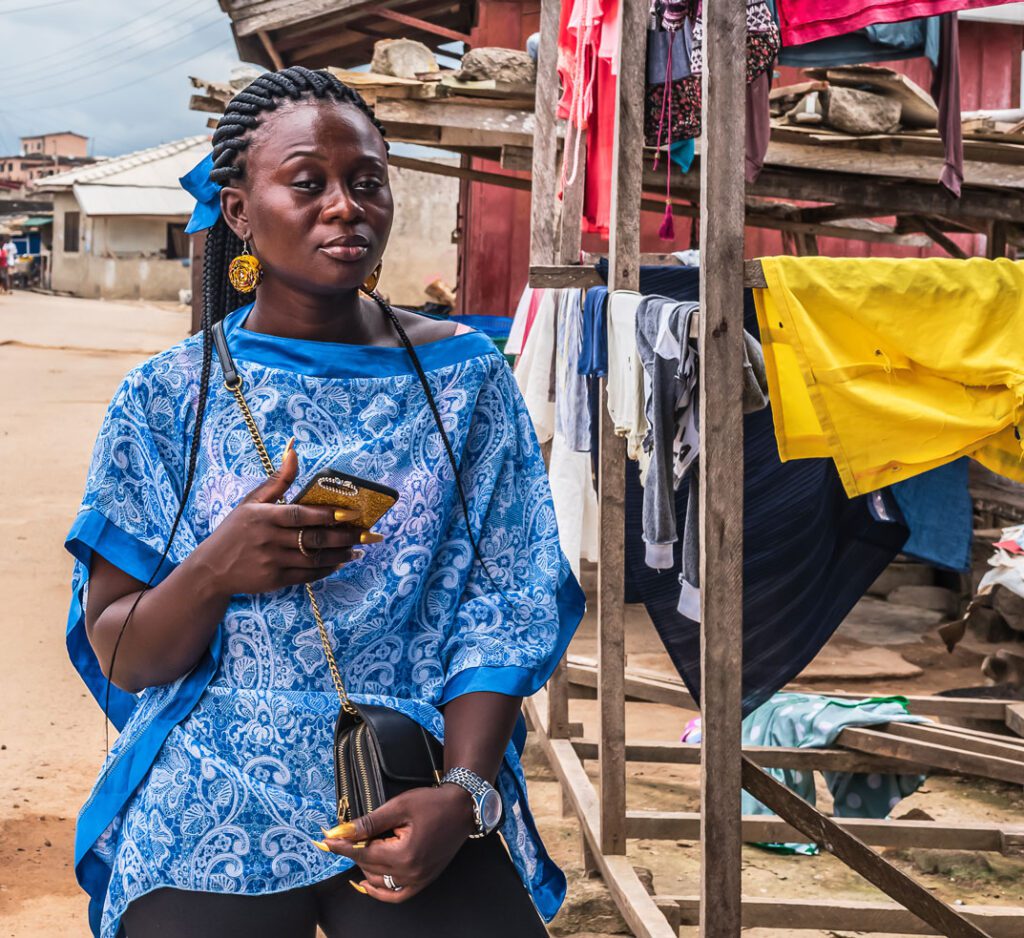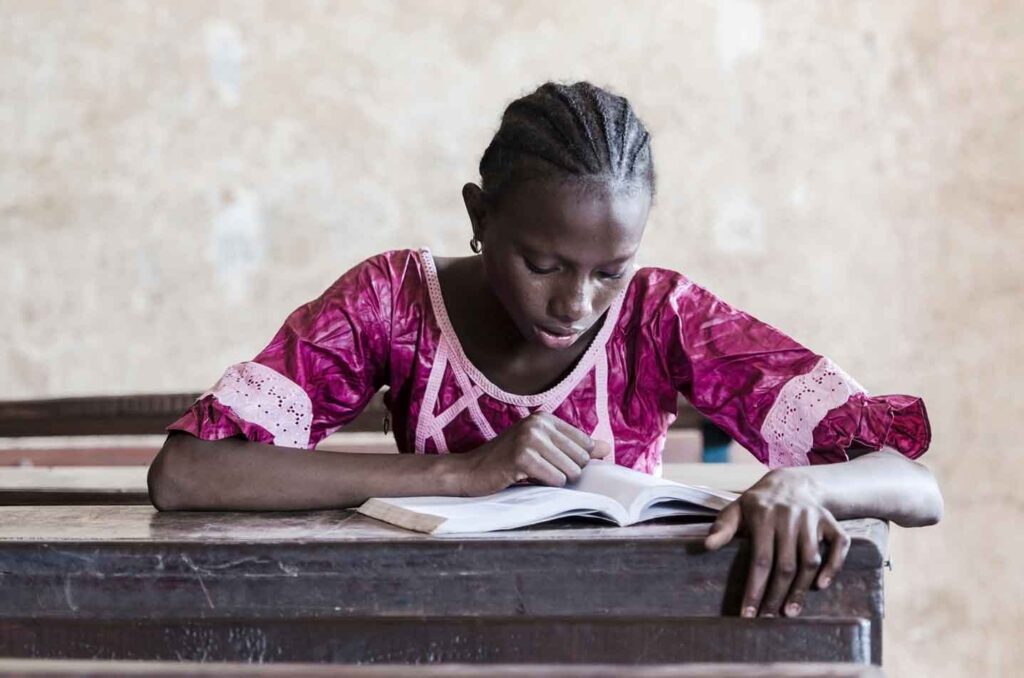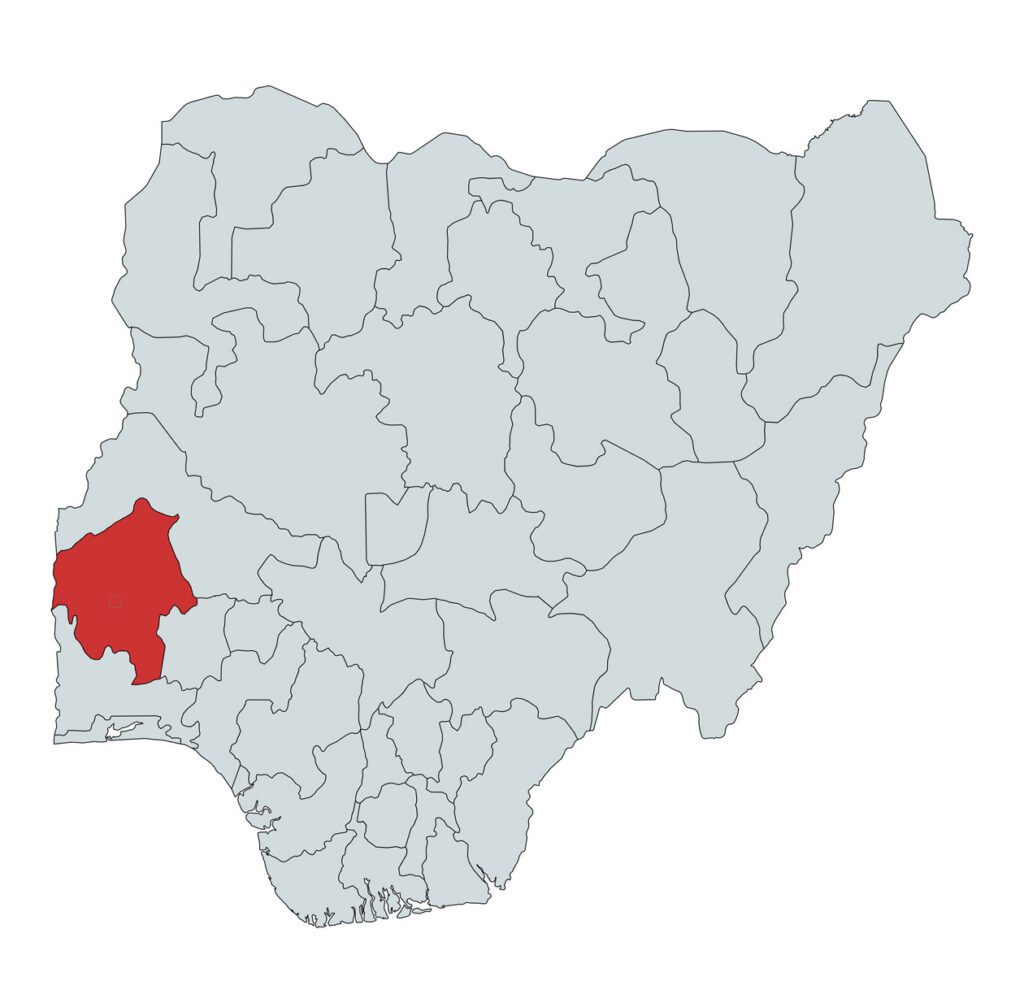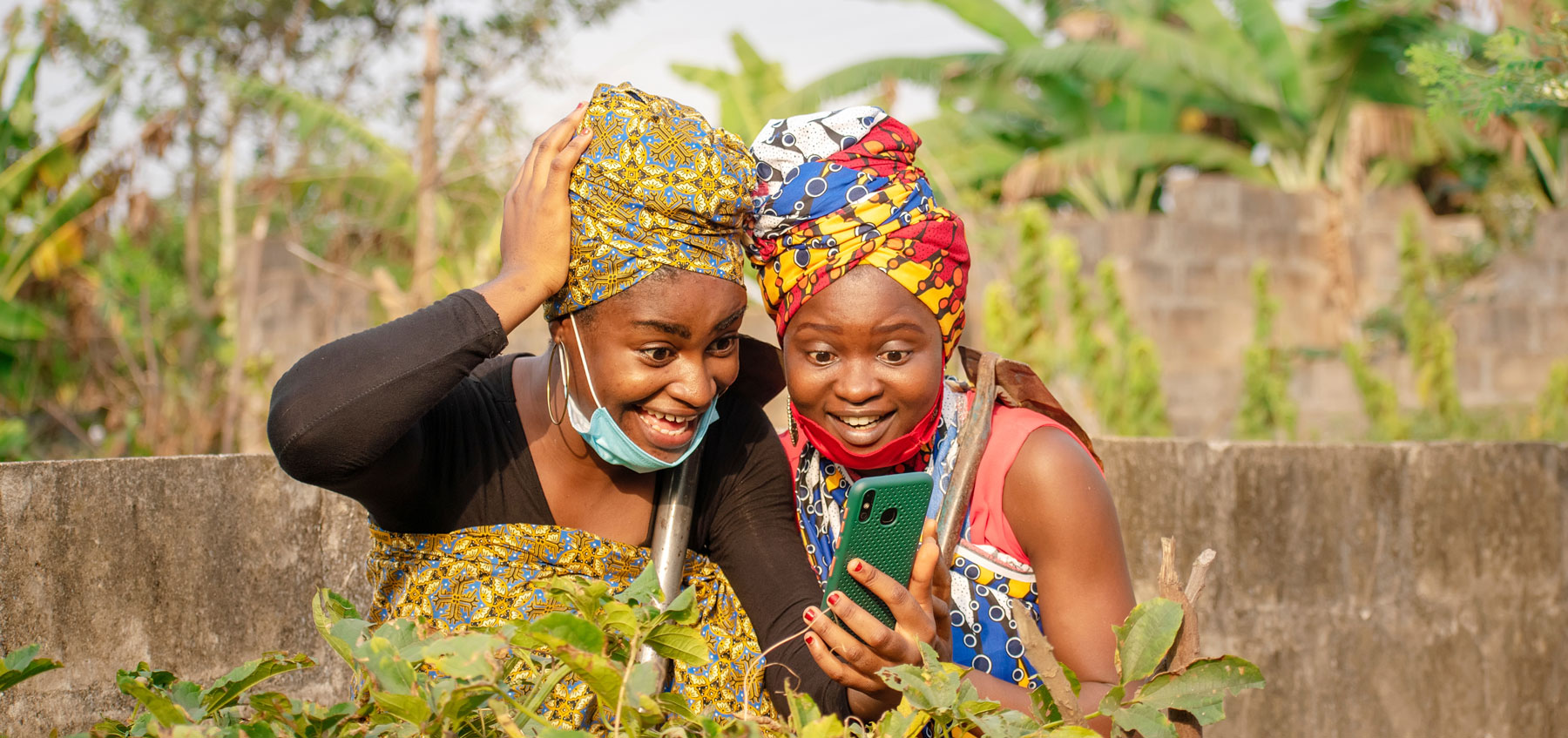OVERVIEW
STUDY DATES: 2018 – 2024
Research Title: A Mobile-Enabled Economic Empowerment Intervention to Reduce Risk for Partner Violence and Adolescent Pregnancy Among Adolescent Girls in Ibadan, Nigeria
This research aims to refine and evaluate Girls Invest, an economic empowerment intervention, to reduce economic and social risks associated with high rates of intimate partner violence (IPV) and adolescent pregnancy among adolescent girls in Ibadan, Nigeria. Girls Invest involves: 1) girls’ completion of gender equity and financial skills training modules via a mobile “app” and 2) provision of incentives supporting girls’ education/career (e.g., paying for school exam fees or purchasing an item, such as a sewing machine, that supports their apprenticeship). Girls Invest is delivered via an app, given that mobile app use is increasing, supports access and engagement among adolescents, and promotes sustainability and scalability. Girls Invest combines the most promising economic empowerment strategies found effective among adolescent girls across the globe, including the 1) provision of concrete financial resources for girls, 2) the focus on improving financial literacy, and 3) efforts to promote critical consciousness related to gender equity.

Study Aims
- First, we refined Girls Invest with consultation from a community advisory board.
- Second, to determine preliminary efficacy, we implemented a 2-armed randomized-controlled trial, randomizing 16 secondary schools (8 schools per arm) to the Girls Invest intervention or a wait-list control condition. Participants were adolescent girls ages 15-19 in secondary schools within low-income communities of Ibadan.

WHY?
Adolescent girls residing in low-income communities in Nigeria experience high rates of IPV and adolescent pregnancy. Increasing research has shown that economic empowerment interventions among adolescent girls not only improve the economic situation of girls (e.g., by decreasing economic vulnerability/hardship, increasing access to education), but also have been found to reduce girls’ risk for IPV and adolescent pregnancy (e.g., partly by reducing financial reliance on male partnerships as a result of economic vulnerability). Economic vulnerability contributes to high rates of IPV and adolescent pregnancy in two major ways: 1) Economic vulnerability increases financial reliance on male partners; IPV is common in these partnerships with males and financial reliance on males decreases girls’ ability to leave abusive partnerships and increases risk for adolescent pregnancy.2) Economic vulnerability can intersect with gender-based constraints (e.g. low prioritization of limited household resources for girls’ education) and create low expectations of educational/career opportunities, which can shift girls’ priorities away from their future training/education and increase intentions to find a male partner and start a family – thereby, increasing girls’ risk for relying financially on male partners and related risks for IPV and adolescent pregnancy. By promoting young females’ financial knowledge as well as social/economic expectations and opportunities, Girls Invest seeks to decrease economic vulnerability, reduce girls’ financial reliance on male partnerships, and reduce girls’ risk for IPV and adolescent pregnancy.
Our study is among the first to develop, implement, and evaluate an economic intervention using a mobile app to reduce social and economic risk factors for IPV and adolescent pregnancy among adolescent girls in Nigeria – and globally. Findings build upon prior studies conducted in other global regions highlighting the potential of economic interventions to promote girls’ social and economic empowerment, and thereby, reduce risks associated with IPV and adolescent pregnancy. Girls Invest has potential for high impact given the increasing smartphone use in Nigeria and globally. Mobile technology is a useful platform to support scalability, is lower in cost compared to traditional in-person approaches, and supports engagement among adolescents.
Principal Investigator (PI)
Olufunmilayo Fawole, MBBS, PhD1
Co-Principal Investigator (Co-PI)
Elizabeth Reed, ScD, MPH2
PI Affiliations
1University of Ibadan, Faculty of Public Health, College of Medicine
Ibadan, Oyo State, Nigeria
2San Diego State University
San Diego, California, USA
Partners
Secondary schools in low-income districts

Location
Ibadan, Nigeria

FUNDER: Wellspring Philanthropic Foundation
Contact us with any inquiries or questions
OUTCOMES
Stay tuned…
Building Research Initiatives Advancing Global Health Equity (BRIDGE) at San Diego State University

